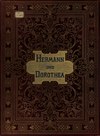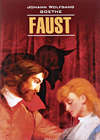Buch lesen: «Letters from Switzerland and Travels in Italy», Seite 37
The voyage from Messina to Naples
We were so entirely occupied with these welcome scenes, that we did not notice the great danger we were in. However, the commotion among the passengers did not allow us to continue long in ignorance of it. Those who were better acquainted with maritime affairs than ourselves were bitterly reproaching the captain and his steersman. By their bungling, they said, they had not only missed the mouth of the strait, but they were very nigh losing the lives of all the passengers intrusted to them, cargo and all. We inquired into the grounds of these apprehensions, especially as we could not conceive how, during a perfect calm, there could be any cause for alarm. But it was this very calm that rendered these people so inconsolable. "We are," they said, "in the current which runs round the island, and which, by a slow but irresistible ground-swell, will draw us against the rugged rocks, where there is neither the slightest footing, nor the least cove to save ourselves by.
Made more attentive by these declarations, we contemplated our fate with horror. For, although the deepening night did not allow us to distinguish the approach of danger, still we observed that the ship, as it rolled and pitched, was gradually nearing the rocks, which grew darker and darker upon the eye, while a light evening glow was still playing on the water. Not the slightest movement was to be discerned in the air. Handkerchiefs and light ribbons were constantly being held up, but not the slightest indication of the much desired breath of wind was discernible. The tumult became every moment louder and wilder. The women with their children were on the deck praying, not indeed on their knees, for there was scarcely room for them to move, but lying close pressed one upon another. Every now and then, too, they would rate and scold the captain more harshly and more bitterly than the men, who were calmer, thinking over every chance of helping and saving the vessel. They reproached him with everything which, during the passage up to this point, had been borne with silence – the bad accommodation, the high passage money, the scanty bill of fare, his own manners – which, if not absolutely surly, were certainly forbidding enough. He would not give an account of his proceedings to any one; indeed, ever since the evening before he had maintained a most obstinate silence as to his plans, and what he was doing with his vessel. He and the steersman were called mere money-making adventurers, who having no knowledge at all of navigation, had managed to buy a packet with a mere view to profit, and now, by their incapacity and bungling, were on the point of losing all that had been intrusted to their care. The captain, however, maintained his usual silence under all these reproaches, and appeared to be giving all his thoughts to the chances of saving his ship. As for myself, since I had always felt a greater horror of anarchy than of death itself, I found it quite impossible to hold my tongue any longer. I went up to the noisy railers, and, addressed them with almost as much composure of mind as the rogues of Malsesine. I represented to them that, by their shrieking and bawling, they must confound both the ears and the brains of those on whom all at this moment depended for our safety, so that they could neither think nor communicate with one another. All that you have to do, I said, is to calm yourselves, and then to offer up a fervent prayer to the Mother of God, asking her to intercede with her blessed Son to do for you what He did for His Apostles when on the lake Tiberias. The waves broke over the boat while the Lord slept, but Who when, helpless and inconsolable, they awoke Him, commanded the winds to be still; and Who, if it is only His heavenly will, can even now command the winds to rise. These few words had the best effect possible. One of the men with whom I had previously had some conversation on moral and religious subjects, exclaimed, "Ah, il Balarmé! Benedetto il Balarmé!" and they actually began, as they were already prostrate on their knees, to go over their rosaries with more than usual fervour. They were able to do this with the greater calmness, as the sailors were now trying an expedient the object of which was, at any rate, apparent to every eye. The boat (which would not, however, hold more than six or eight men) was let down and fastened by a long rope to the ship, which, by dint of hard rowing, they hoped to be able to tow after them. And, indeed, it was thought that they did move it within the current, and hopes began to be entertained of soon seeing the vessel towed entirely out of it. But whether their efforts increased the counteraction of the current, or whatever it was, the boat with its crew at the end of the hawser was suddenly drawn in a kind of a bow towards the vessel, forming with the long rope a kind of bow – or just like the lash of a whip when the driver makes a blow with it. This plan, therefore, was soon given up. Prayer now began to alternate with weeping – for our state began to appear alarming indeed, when from the deck we could clearly distinguish the voices of the goatherds, (whose fires on the rocks we had long seen), crying to one another, "There is a vessel stranding below." They also said something else, but the sounds were unintelligible to me; those, however, who understood their patois, interpreted them as exclamations of joy, to think of the rich booty they would reap in the morning. Thus the doubt which we had entertained whether the ship was actually nearing the rocks, and in any immediate danger, was unfortunately too soon dispelled, and we saw the sailors preparing boat-poles and fenders, in order, should it come to the worst, to be ready to hold the vessel off the rocks – so long at least as their poles did not break, in which case all would be inevitably lost. The ship now rolled more violently than ever, and the breakers seemed to increase upon us. And my sickness returning upon me in the midst of it all, made me resolve to return to the cabin. Half stupefied, I threw myself down on my mattress, still with a somewhat pleasant feeling, which seemed to me to come over from the Sea of Tiberias, for the picture in Merian's Pictorial Bible kept floating before my mind's eye. And so it is: our moral impressions invariably prove strongest in those moments when we are most driven back upon ourselves. How long I lay in this sort of half stupor I know not, for I was awakened by a great noise overhead; I could distinctly make out that it was caused by great ropes being dragged along the deck, and this gave me a hope that they were going to make use of the sails. A little while after this Kniep hurried down into the cabin to tell me that we were out of danger, for a gentle breeze had sprung up; that all hands had just been at work in hoisting the sails, and that he himself had not hesitated to lend a hand. We were visibly getting clear off the rocks; and although not entirely out of the current, there was now a good hope of our being able to make way against it. All was now still again overhead, and soon several more of the passengers came below to announce the happy turn of affairs, and to lie down.
The voyage from Messina to Naples
When on the fourth day of our voyage, I awoke early in the morning, I found myself quite fresh and well, just as I had been at the same period of the passage from Naples; so that on a longer voyage I may hope to get off free, after paying to the sea a three days' tribute of sickness.
From the deck I saw with no little delight the island of Capri, at a tolerable distance on our lee, and perceived that the vessel was holding such a course as afforded a hope of our being able ere long to enter the gulf, which, indeed, we very soon afterwards accomplished. And now, after passing a hard night, we had the satisfaction of seeing the same objects as had charmed us so greatly the evening before, in a reversed light. We soon left this dangerous insular rock far behind us. While yesterday we had admired the right hand coast from a distance, now we had straight before us the castle and the city, with Posilippo on the left, together with the tongues of land which run out into the sea towards Procida and Ischia. Everyone was on deck; foremost among them was a Greek priest, enthusiastic in the praises of his own dear East; but who, when the Neapolitans on board, who were rapturously greeting their glorious country, asked him what he thought of Naples, as compared with Constantinople? very pathetically replied, "Anche questa è una città!" (This, too, is a city.)
We reached the harbour just at the right time, when it was thronged with people. Scarcely were our trunks and the rest of our baggage unshipped and put on shore ere they were seized by two lusty porters, who, scarcely giving us time to say that we were going to put up at Moriconi's, ran off with the load as if with a prize, so that we had difficulty in keeping them in view as they darted through the crowded streets and bustling piazzas. Kniep kept his portfolio under his arm, and we consoled ourselves with thinking that the drawings at least were safe, should these porters, less honest than the poor Neapolitan devils, strip us of all that even the very breakers had spared.




















